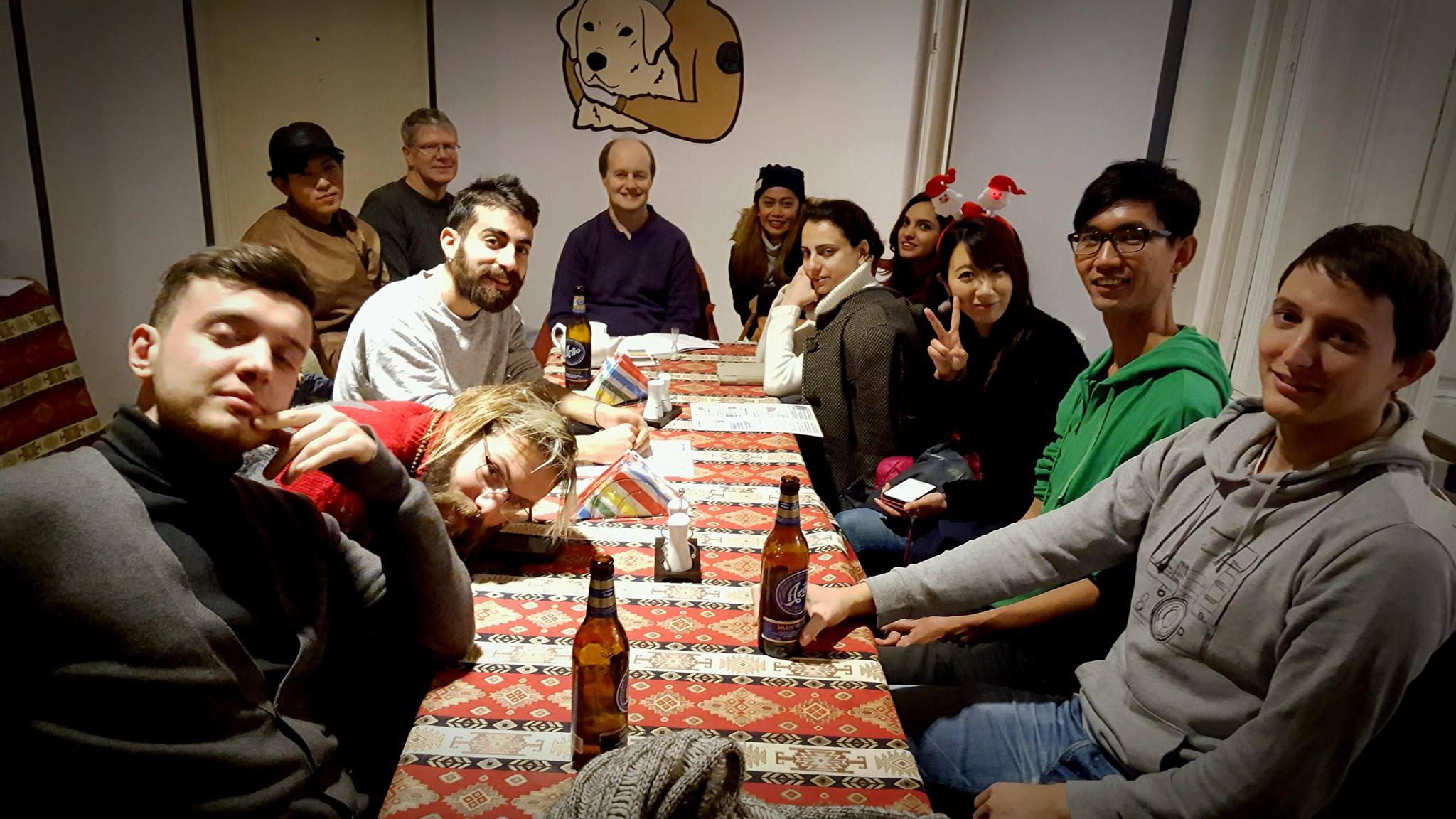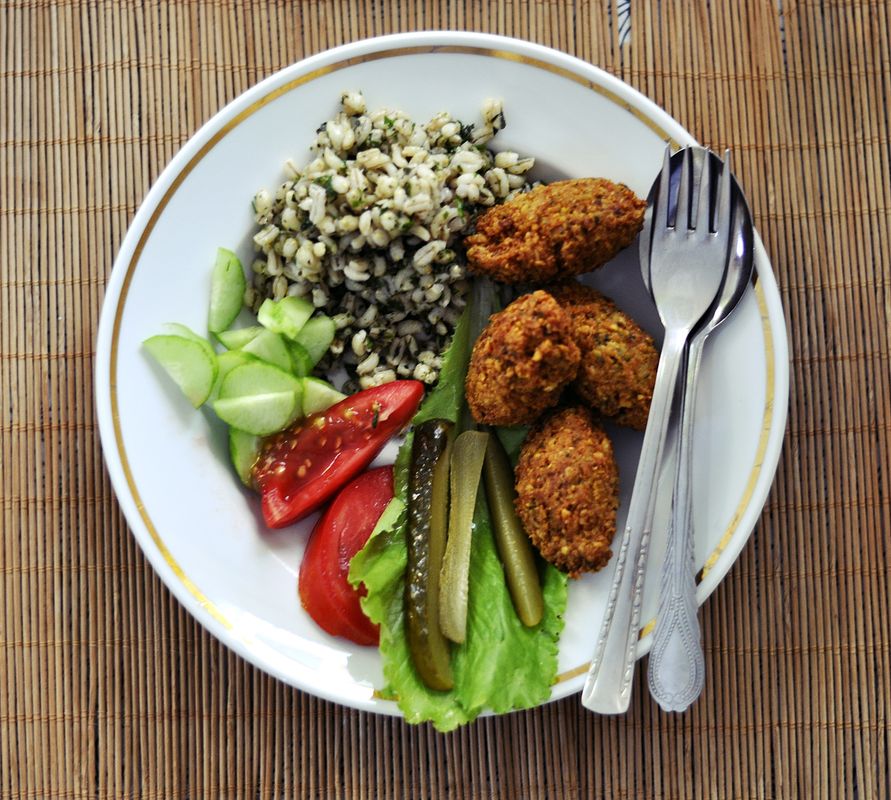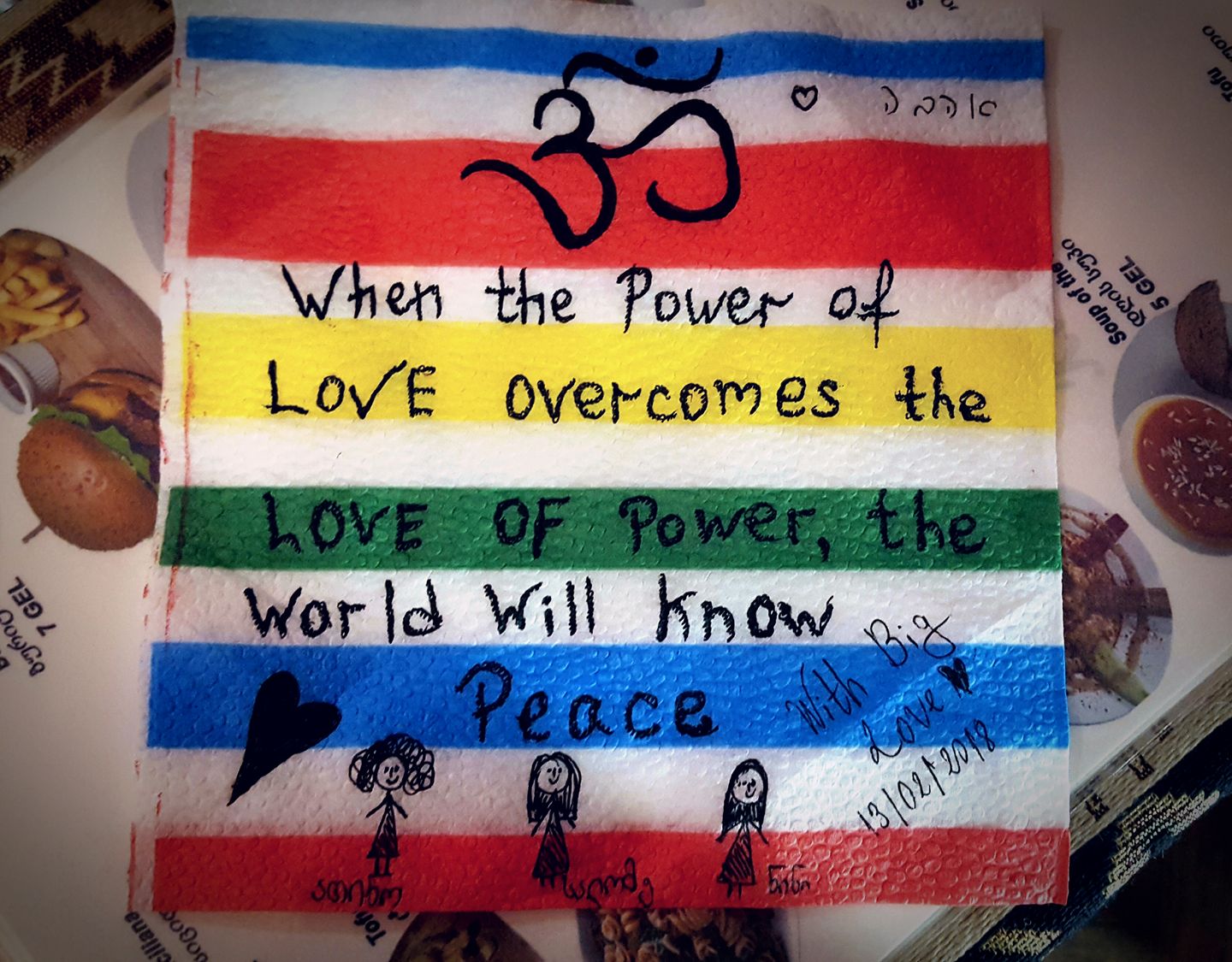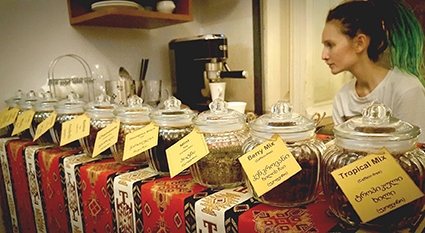Kiwi Vegan Café: A Peek Into Tbilisi’s Animal & Environment Loving Food Scene
Exclusive Interview
Kiwi Vegan Café is ideal for backpackers, those on a budget and those, as the name suggests, who love vegan food. It's a simply-furnished affair with hand-painted walls and a mishmash of furniture. The smell when you walk in is that of a typical Georgian grandma's house- musk and dry tea leaves. As Tbilisi’s food revolution continues, with innovative restaurants popping up here, there and everywhere, GEORGIA TODAY decided to have a chat with Soroush Negahdari, co-founder of Kiwi Vegan Café, to get an idea behind the story and raison d’être of this unique establishment.
Tell us a bit about yourself and your inspiration behind starting Kiwi Vegan Café
I moved to Georgia about four years ago. I was and I still am vegan and animal rights supporter and that was the inspiration behind opening the café. However, opening Kiwi Vegan Café was not only my idea- a group of vegans who cared about animals and the environment got together and started the café as a non-profit. We were a community of vegans from Georgia and other countries who lived here at the time. We got together and with our personal money and belongings, and with the help of friends and a larger community of supporters and volunteers, we managed to open the café on July 4, 2015.
Why the vegan element?
First of all, everyone behind this was vegan and that is what we all wanted to have; a cozy vegan place for people to enjoy vegan meals and share ideas and love. We thought that it was something that Tbilisi was missing at the time. There were some vegans and a lot of vegetarians living here and the need for a vegan café could be felt. Tourists who came here were also looking for vegan places. We also believed that we could raise awareness not only about animal rights, but also about environmental issues and health and diet problems which are present in the country and we believe we have made some changes already. There is more awareness about animal rights and environmental problems and we believe that we can get credit for at least part of it.

Vegans often get bad press. What kinds of challenges, if any, have you faced because of this?
Well, I’m not sure vegans always get press. Just like other communities, there are different types of people in the vegan community and I believe once in a while someone might do something that draws a lot of attention and the mainstream media tends to be more interested in such news, as there will be more people interested in reading about it. We haven’t faced any serious problems except for one incident that happened about two years ago. A group of ultranationalists came to the café and interrupted a movie screening event that we had. It ended in a fight that involved even the neighbors. This was all over the local and international news at the time, so I don’t want to waste your readers’ time with details as they might already know about it. That one incident, and a couple of times that we had some young, drunk teenagers who didn't like us being kind to minorities, are the only major challenges we’ve had. Most people tend to be curious and interested. There are some people who are not familiar with the whole concept of veganism and animal rights and it can seem a bit weird for them and also a bit difficult for us to explain to them who we are and what we do; but that is not a big challenge. We know that this is something new for Georgia and Tbilisi and we didn't expect things to be easy for us.
What makes Kiwi unique?
I think apart from our menu and our interior, which are two important and interesting factors for people, there are other things that make us a bit different from most cafés in Tbilisi. We offer a free platform for people to have meetings and events without asking them to order food or pay a fee for using our space. We also have a free work/study room where people can read or write, work online or meet each other and stay as long as they want without having to order any food or drink. We are also openly supportive of all minorities that might have a difficult time visiting other cafés and restaurants in Tbilisi, which is something we are proud of.
From a culinary perspective, what are your influences? Do you draw any inspiration from traditional Georgian recipes?
In the beginning, we had some Georgian dishes which are vegan by origin but we decided to take them off the menu. I personally believe that Georgian food is made with great quality and good prices in local Georgian restaurants and we should let people enjoy it in those restaurants. Our menu has dishes from various countries and cuisines, including Middle Eastern, Indian, Mexican and Asian. There are also some dishes that we came up with that are basically different versions of the foods that are already popular here, like our “Tofu Shawarma” and “Buckwheat with Tofu.” We also offer a range of vegan smoothies and fresh drinks which were new but interesting for our guests.

I can see the appeal of this restaurant to Westerners, but how popular are you with locals - especially considering the fact that, despite the abundance of vegetarian dishes, dairy is everywhere?
In the beginning, almost all our guests were tourists and expats and I was not personally very happy about it. We wanted Georgian people to know about this concept and this type of cuisine, as is one of the reasons we decided to open the café in the first place. My good coworkers and I made some important changes in our advertisements, hosting, and our menu since last year, which has changed the situation already. We are glad that, these days, about half our guests are Georgian and are giving good feedback. It’s interesting that sometimes even Georgian families come to Kiwi with their kids to enjoy a healthy and tasty dinner, which is something new for us.
With regards to the food you serve, do you produce any of the ingredients?
We have friends who make soymilk and tofu from local ingredients and also some organic greens sometimes. Apart from this, we do not produce any other ingredients yet, but we are looking forward to doing so and we might start with some ingredients this summer with the help of local farmers in the villages around Tbilisi. We always try to buy local products from Georgian producers and distributors if they are available and affordable. We always promote shopping locally for environmental and economic reasons to support Georgia and the Georgian market. Unfortunately, there are products that we cannot buy from Georgian producers as they are either not produced here or are too expensive to buy considering the prices we have for our dishes on the menu.
What are some of your proudest accomplishments?
Well, we're glad that we're here, and that we help people know more about being kinder and more respectful to animals and the environment. Serving a minimum average of 60 meals per day at our café, and using data on people’s diets internationally, we have a rough calculation that shows we’ve saved about 2,500 to 4,000 thousand animal lives per year. This also means a positive effect on the environment and air pollution and saving millions of liters of clean drinking water. I believe that is our biggest and most important accomplishment. In addition, and as previously mentioned, partly because of our existence and our efforts, there has been a big increase in the number of vegans and people who care about animals and the environment in Tbilisi and Georgia. There are also meetings, gatherings, presentations and social events which are made possible as we let and also encourage people to use our café for free in order to spread their ideas and discuss their issues with other people. There might be some other accomplishments, but I believe that what we need to focus on is how to improve and have a greater impact instead of being too proud of what we have achieved so far.

What are your goals for the future?
I believe that the best goal is to grow day by day. We’re looking forward to having our own vegan shop selling healthy food products. There might also be a second Kiwi in the near future in another location in Tbilisi if we get enough interest and demand from people. We’re going to get involved in some organic farming in Georgia and also support and promote those who are already involved. We’ve had meetings about it already and we hope we can start it as soon as possible. We already help people who are active in animal rights and environmental issues, but we are planning to do it on a larger scale.
What would you like your legacy to be?
Having fewer animals killed and abused; healthier, kinder and better-aware people in Georgia and a better preserved environment is the best we can aim for.
By Máté Földi












